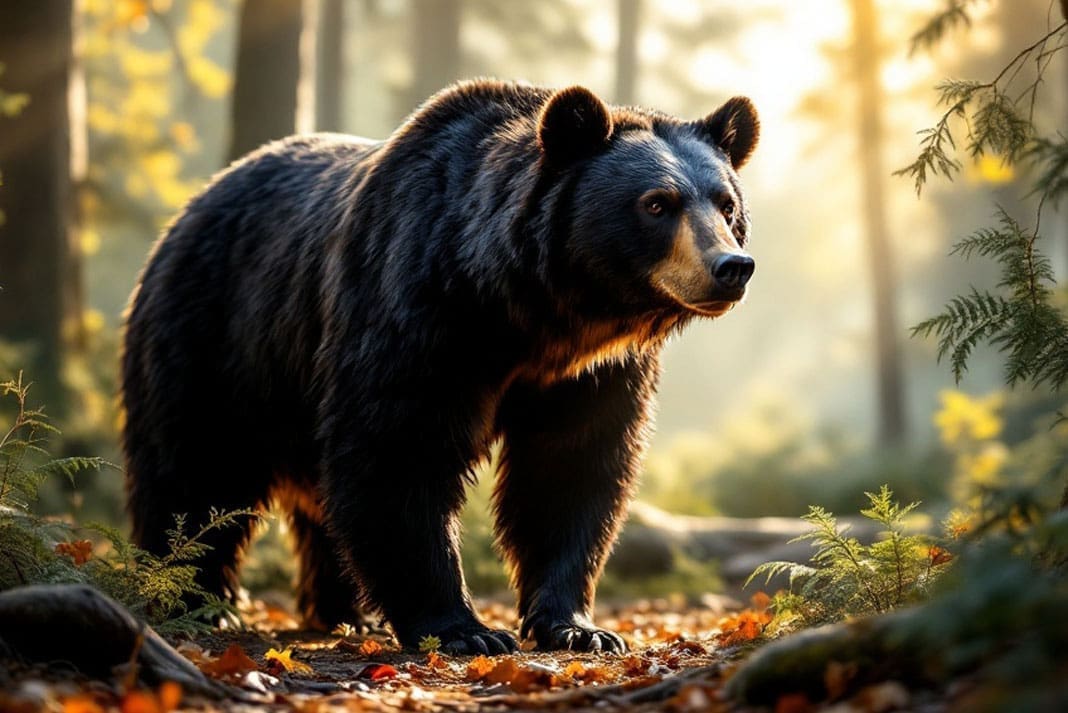Ocala, FL – The Florida Fish and Wildlife Conservation Commission (FWC) has ignited a fervent statewide debate with its recent preliminary approval of a black bear hunt slated for December 2025
In a decisive 4-1 vote this past Wednesday in Ocala, commissioners moved forward with plans to implement the first regulated bear hunt in Florida in a decade, aiming to manage the state’s growing bear population.
The decision, which still requires a final vote in August, has sent ripples across Florida, eliciting strong reactions from both proponents and passionate opponents of the hunt.
A Decade in the Making: Why Now?
Florida’s black bear population has experienced a remarkable recovery in recent decades, rebounding from an estimated few hundred in the 1970s to approximately 4,000 today. This conservation success, while celebrated, has brought with it an increase in human-bear interactions, particularly in rapidly developing areas.
FWC officials argue that a regulated hunt is a “biologically sound method” to slow population growth and maintain a healthy, well-managed bear population for the future. Chairman Rodney Barreto emphasized that the resurgence of the black bear is a “win for all Floridians,” but acknowledged the need for management to ensure long-term stability and address mounting conflicts.
Proponents of the hunt point to the rise in bear sightings in residential areas, property damage, and, tragically, a recent fatal bear attack in Collier County, as evidence of the need for population control. Hunters and outdoor groups have also asserted that bears are a game species, and Florida is one of only six states with significant black bear populations that doesn’t allow a regulated hunt.
A Carefully Structured Hunt, Or a “State-Sanctioned Slaughter”?
Learning from the contentious 2015 hunt, which was halted prematurely after over 300 bears were killed in just two days, the FWC has proposed a more conservative approach. The December 2025 hunt would utilize a limited lottery system for permits, with an initial quota of 187 bears. This structured approach aims to prevent overharvesting, with a focus on specific “Bear Management Units” (BMUs) where populations are highest. The proposed rules also stipulate no killing of cubs or females with cubs, and permits would cost $100 for Florida residents and $300 for non-residents. Methods could include bowhunting, and potentially the use of up to six dogs to corner bears, as well as hunting at baited stations on private property.
However, critics remain vehemently opposed. Animal rights advocates and conservation groups dub the proposed hunt a “state-sanctioned slaughter,” arguing that there isn’t sufficient scientific evidence to justify lethal management. They contend that the real problem lies in urban sprawl encroaching on bear habitats and inadequate public education on coexisting with wildlife.
Opponents advocate for increased investment in non-lethal solutions, such as bear-proof trash containers, public awareness campaigns, and proper attractant management, as more effective ways to mitigate human-bear conflicts. Concerns have also been raised regarding the ethical implications of baiting and the use of dogs. The FWC received over 13,000 online comments on the proposal, with approximately three-quarters expressing opposition.
What Comes Next For Florida Bear Hunting?
The preliminary approval in May is a significant step, but the final decision rests with the FWC in August. This upcoming meeting is expected to be another highly charged affair, as both sides prepare to present their arguments with renewed vigor. The outcome will not only determine the fate of Florida’s black bears in the immediate future but also set a precedent for wildlife management in a state grappling with balancing a thriving ecosystem with rapid human expansion.
For hunters and wildlife enthusiasts, the potential for a regulated bear season represents an opportunity for responsible harvest and contributions to conservation efforts through permit fees. For those who oppose the hunt, the fight continues to protect Florida’s iconic black bears through non-lethal means. The Sunshine State watches, waiting for the final word on its black bear population.
